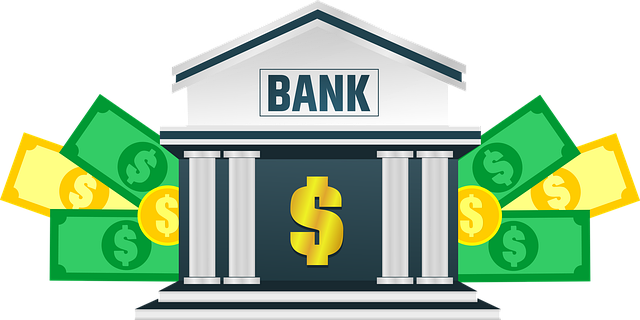Understanding your business's unique funding requirements is essential when seeking loans. Lenders offer tailored options for startups and established businesses, with varying interest rates, repayment periods, and collateral demands. Comparing loan types from traditional banks to online platforms, entrepreneurs can choose the best terms aligning with their goals. A meticulous analysis of loan options, their processes, and conditions ensures businesses access optimal funding, enhancing growth prospects.
“Navigating the complex world of business funding is a crucial step for startups and growing businesses. Understanding your funding needs is the first step towards securing capital for expansion. This article delves into various loan options available from traditional banks to online lenders, providing insights on crucial aspects like interest rates, repayment periods, and collateral requirements (loan terms). By comparing application processes, we aim to streamline the journey, helping entrepreneurs choose the right lender for their optimal financial partnership.”
- Understanding Business Funding Needs: Identifying Loan Options for Startups and Growing Businesses
- Exploring Different Types of Loans: From Traditional Banks to Online Lenders
- Deciphering Loan Terms: Interest Rates, Repayment Periods, and Collateral Requirements
- Comparing Application Processes: Streamlining the Journey from Application to Approval
- Choosing the Right Lender: Factors to Consider for Optimal Financial Partnership
Understanding Business Funding Needs: Identifying Loan Options for Startups and Growing Businesses

Understanding your business’s funding needs is a crucial first step in the loan search process. Different lenders offer various loan options tailored to specific requirements, from startup capital to expansion projects. Identifying the right loan type can significantly impact a company’s growth trajectory. Lenders consider factors like business age, industry, and financial health when offering loans, ensuring that terms align with individual needs.
For startups, accessing funding may involve exploring government-backed loans or grants designed to support new ventures. These programs often offer favorable loan terms, such as low-interest rates and flexible repayment periods. As businesses grow, traditional bank loans become more viable, providing longer-term financing for established entities. Understanding these diverse loan options allows entrepreneurs to make informed decisions, ensuring they secure funding that aligns with their business funding needs and future goals.
Exploring Different Types of Loans: From Traditional Banks to Online Lenders

When it comes to exploring different types of loans for your business funding needs, there are a multitude of options available today. Traditional banks have long been the go-to choice for many entrepreneurs, offering a range of loan products with established loan terms and often stringent requirements. However, the rise of online lenders has introduced new possibilities, catering to various loan options tailored to specific business profiles and financial situations.
These alternative lenders often provide agility and flexibility in their application processes. Online platforms streamline the initial steps, making it convenient for businesses to compare loan offers quickly. Varied loan terms are another key aspect to consider—from short-term loans with faster approvals to longer-term financing options, each designed to suit distinct business funding scenarios. This evolution in loan accessibility empowers entrepreneurs to navigate their financial needs more effectively, choosing the best fit based on their unique circumstances.
Deciphering Loan Terms: Interest Rates, Repayment Periods, and Collateral Requirements

When comparing different lenders for business funding needs, understanding the intricacies of loan terms is paramount. Key factors to decipher include interest rates, which can significantly impact the overall cost of borrowing. Loan options vary widely in this regard, from fixed to variable rates, each with its own implications for cash flow planning. Additionally, repayment periods play a crucial role, as they dictate the pace at which you’ll need to pay back the loan. Shorter terms usually come with higher monthly payments but potentially lower interest charges over time.
Another critical aspect is the collateral requirements. Some lenders demand specific assets or security, such as real estate or equipment, to safeguard their investment. This can be a significant consideration for businesses that lack substantial hard assets. Conversely, other lenders may offer more flexible terms with minimal collateral needed, making funding accessible to a broader range of entrepreneurs. Deciphering these loan terms is essential for securing the most favorable conditions that align with your business funding needs.
Comparing Application Processes: Streamlining the Journey from Application to Approval

When it comes to securing business funding, comparing loan options and their application processes is essential for streamlining your journey from application to approval. Each lender has its unique approach and requirements, which can significantly impact the time and effort needed to gain access to much-needed capital. Understanding these differences is crucial for entrepreneurs aiming to navigate the complex landscape of loan terms and choose the most suitable financing option for their business funding needs.
A comprehensive review of application processes reveals a range of factors that contribute to efficiency or potential delays. Some lenders offer straightforward, digital applications that are easily accessible online, while others may require extensive documentation and in-person visits. Efficient lenders often provide clear guidelines and transparent communication throughout the process, ensuring applicants know what information is required and when. This clarity can save businesses time and reduce the risk of their application being delayed or denied due to missing details or incorrect paperwork.
Choosing the Right Lender: Factors to Consider for Optimal Financial Partnership

When seeking business funding, selecting the appropriate lender is a pivotal decision that can significantly impact your financial trajectory. The process involves careful consideration of various factors to ensure a suitable match between your business needs and the lender’s offerings. One key aspect is understanding the diversity of loan options available, from traditional bank loans to alternative financing platforms. Each has its own set of advantages and considerations regarding interest rates, repayment terms, and collateral requirements.
Evaluating potential lenders should include an in-depth look at their loan terms, flexibility, and customer support. Consider your specific business funding needs and compare them with the lender’s capabilities. Opting for a lender that aligns with your desired loan amount, terms of repayment, and interest rates is essential. Additionally, checking their reputation, transparency in processes, and customer reviews can provide valuable insights into the quality of their services and ensure a positive financial partnership.






